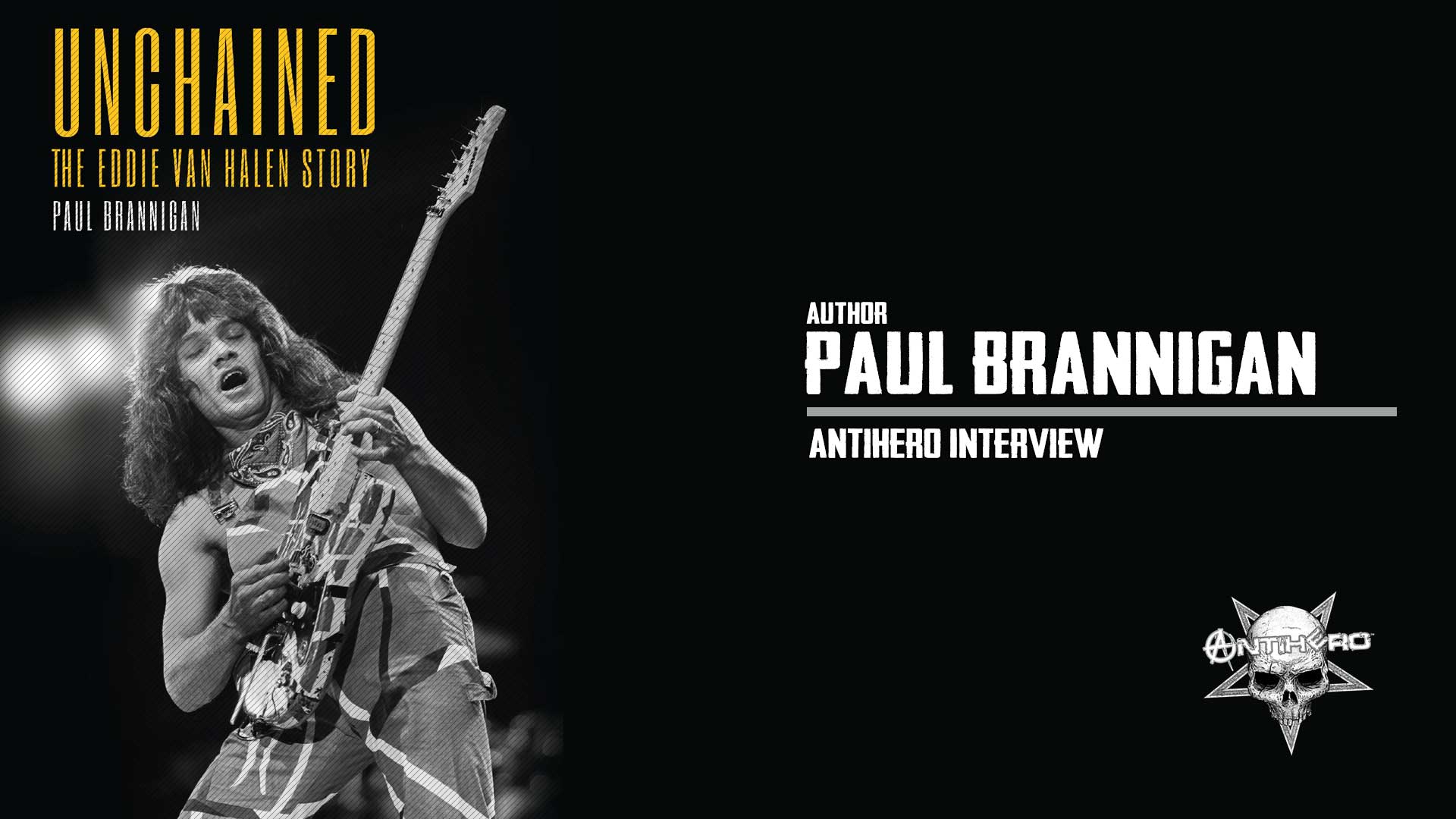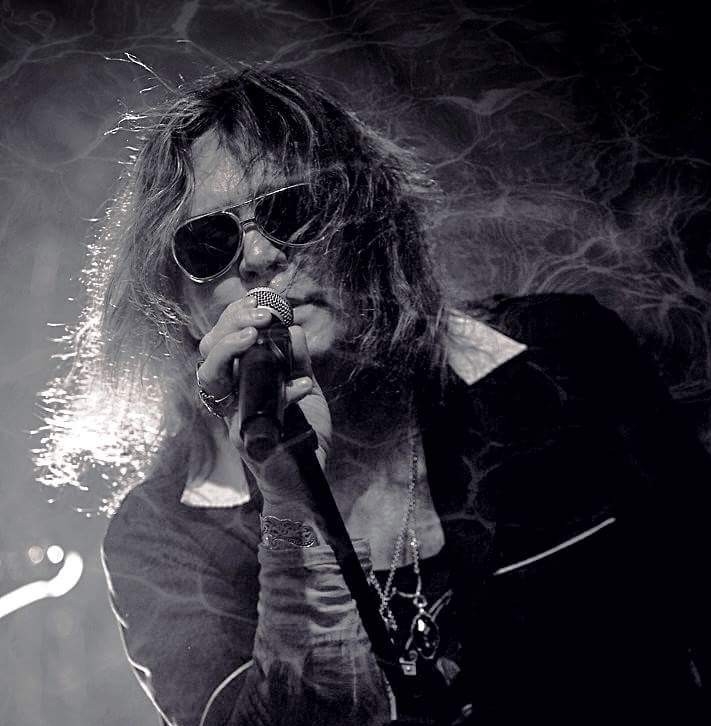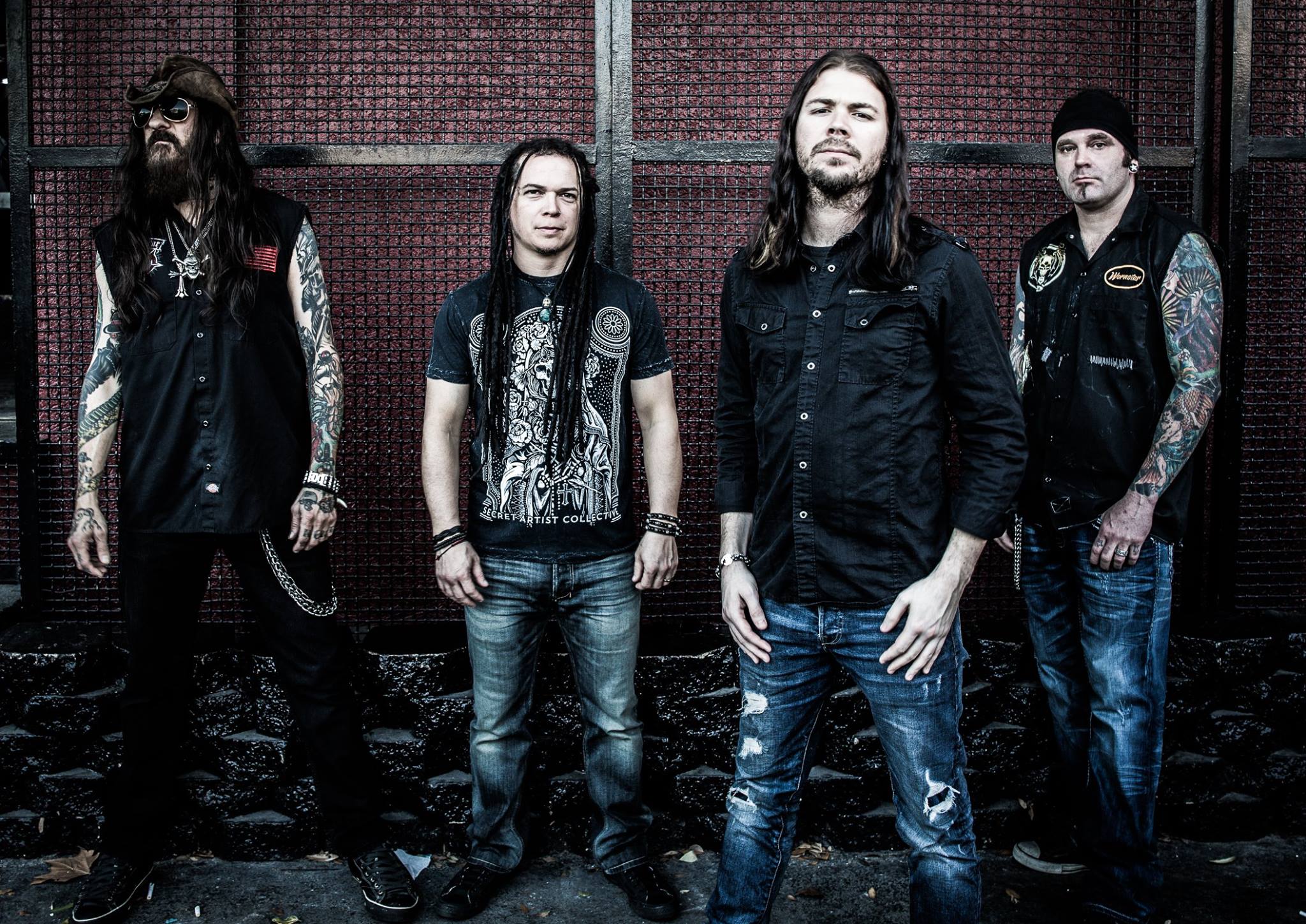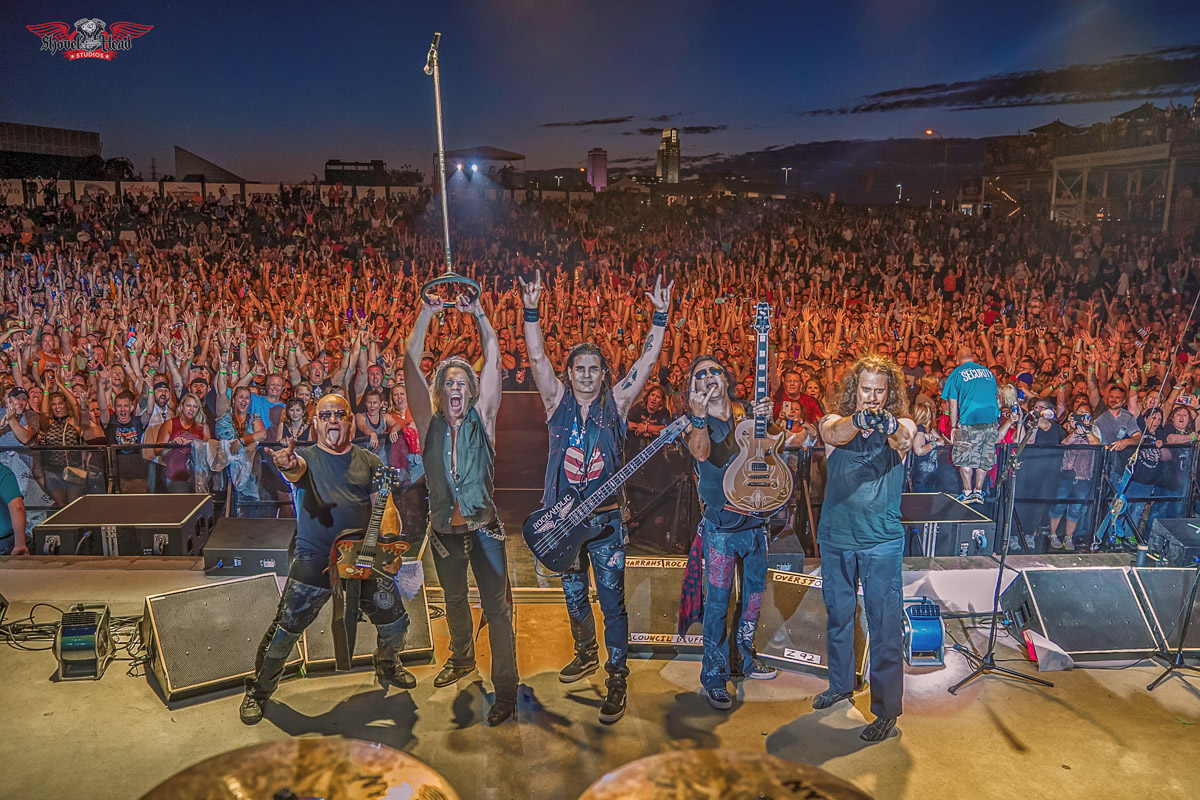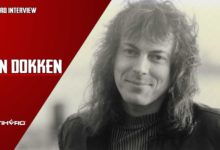The first full-length biography of Eddie Van Halen—a searching, affectionate, and in-depth look at the remarkable life of a genuine musical virtuoso who changed the course of rock ’n’ roll.
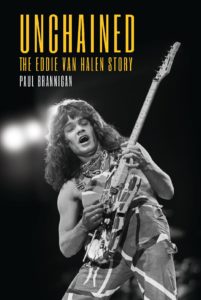 Arriving in California as a young boy in the early 1960s, Edward Van Halen and his brother Alex were ripe for the coming musical revolution. The sons of a Dutch, saxophone-playing father, the brothers discovered the Beatles, Cream, and other icons as they bond together as musical partners, forming identities for themselves in their adopted home along the way.
Arriving in California as a young boy in the early 1960s, Edward Van Halen and his brother Alex were ripe for the coming musical revolution. The sons of a Dutch, saxophone-playing father, the brothers discovered the Beatles, Cream, and other icons as they bond together as musical partners, forming identities for themselves in their adopted home along the way.
From the moment their hugely influential 1978 debut landed, Van Halen set a high bar for the rock ’n’ roll lifestyle, creating an entirely new style of post-’60s hard rock and becoming the quintessential rock band of the 1980s. But the high-flying success was fraught with difficulty, as Eddie struggled with alcohol and drug addiction while simultaneously battling David Lee Roth over the musical direction of the band, eventually taking the band in an entirely new direction with Sammy Hagar and scaling new heights, before that iteration of Van Halen disintegrated.
Acclaimed biographer Paul Brannigan tackles the dramatic story with respect and affection for one of rock’s greatest musicians, pairing original interviews with meticulous research to bring the story of Eddie Van Halen completely up to date. Unchained: The Eddie Van Halen Story is a remarkable account of determination, genius, and single-minded commitment to the music.
“The game-changing guitar legend gets the biography he deserves… Diligently researched, perceptive and well-written.” —Classic Rock
“Affectionate and unflinching portrait of heavy metal’s Mount Everest… Paul Brannigan goes deep here, his detailed…biography probing Van Halen’s psyche as well as his music.” —MOJO
AUTHOR BIO
Paul Brannigan is a former editor of Kerrang! and Planet Rock magazine, and a current contributor to MOJO, Classic Rock, Metal Hammer, Kerrang! and Louder. He has previously written books on Dave Grohl, Metallica, and much-missed Motorhead legend Lemmy. Born and raised in Ireland’s Six Counties, Brannigan lives in North London.
I recently had the opportunity to catch up with a fellow native of N. Ireland and journalist to discuss his new Edward Van Halen biography and to discuss the changing face of journalism since he first started.
ANTIHERO: Good afternoon. I just wondered, first, taking you back outside of your book, how did you get first involved in journalism?
Paul Brannigan: I can tell you’re a man from my own part of the country, Mark.
ANTIHERO: I am indeed, and it’s good to hear that accent again. Yes, I’m originally from Antrim.
Paul Brannigan: Oh, okay. Right. I’m from Newcastle.
ANTIHERO: Right. So how did you get started? Was it something like you started reviewing local bands maybe in Belfast, or how did you get into it first?
Paul Brannigan: Yeah, pretty much. Basically, Kerrang! put an advert in the magazine in like 1993 sort of looking for regional contributors. I guess at the time, see, Therapy? had just sort of broken through and maybe Ash had maybe just about started then, and so I sort of said, “Well, you’ve sort of missed out on a few bands from Northern Ireland, and you haven’t had anybody working from Northern Ireland for years,” because I used to buy Kerrang! in the ’80s at home.
Yeah, so I wrote that, and then they sort of asked me… Oh, you had to write a sample review, and so I wrote a review of a show by Faith No More and Sonic Youth and other bands at the Sunstroke Festival in Dalymount Park in Dublin, and then yeah. Then they sort of had…, well they narrowed it down and narrowed it down, gave me some more reviews to write, and then basically said, “Right, do you want to start writing for us?” So that was the start, and then yeah. Then in about ’95, they said… I’d been over a few times and gone into the office to say, “Hello,” and then in the summer of ’95, they were like, “Oh, would you fancy moving over here and doing more work?” Because I guess I’d already done a cover story at that point, maybe two, and they said, “If you move over, we’ll try and sort of look after you. We’ll try and give you enough work to keep you afloat, kind of thing,” so yeah, so I moved to London in August ’95, and that was that.
ANTIHERO: So, was that initially on a freelance basis, or did they give you a formal employment contract?
Paul Brannigan: No, it was all freelance, but basically, they just kept me working. I mean, obviously, it was in London. I never said, “No,” to anything, so it was just constantly like the phone would ring and they’d say, “Can you do this? Can you do that? Can you do this?” I sort of said I’d do everything that they offered me, and then I’d be in the office every now and again, because I didn’t even have a computer, so I’d basically come in to type up the reviews and stuff, which probably helped me in a way, because then I was always around. Sometimes they’d literally be looking around the office going, “Oi, can you nip down to the Borderline and interview somebody? Can you go down to the Astoria and interview somebody,” or “Can you talk to somebody in 20 minutes?” So yeah, I was very available, so yeah, between that and sort of selling CDs, that sort of kept me afloat in London.
ANTIHERO: So, you never had any formal sort of writing training or anything like that? I mean, were you naturally good at English at school? Was that sort of your favourite subject, or something that you excelled in?
Paul Brannigan: Well, I mean, I did English A-levels, but I’d say I guess my education then was sort of reading all the music papers, you know? I bought Kerrang! every week. I bought NME every week. I bought Melody Maker every week. Literally, every week from 1985 to… I’d say 1995. Could be even longer. Literally every week. I never missed an issue, and then yeah. I mean, at university, I did a course called American studies, which was basically like history and literature and English and music and stuff like that, so I did that, so yeah.
I had no sort of formal training, but I actually did, just before… Well, just after I’d sort of got that, started that job, I got a sort of traineeship/internship sort of thing at the BBC in Northern Ireland, which was sort of for people who were on the dole, basically. They took 10 people and would sort of give you training in media, so it was like shooting sort of film segments or doing things for radio and stuff. I did some things for Across the Line at that point, Mike Edgar’s show, and did a few… Yeah. Oh, they were sort of like sports things and stuff for Radio Ulster and answered the phones for John Bennett and George Jones and people like that. Yeah. I guess my training was reading music journalists, you know?
ANTIHERO: I think it was easier in those days to get an opportunity with a printed publication, rather than it is these days because personally, it’s hard to make that step up. I’ve written for a lot of websites, but it’s hard to get that paid gig, because a lot of people are prepared to work freelance and work for nothing, essentially.
Paul Brannigan: Yeah. Yeah. I mean, I was lucky. I mean, it was a different time. I remember when I started, I remember saying that I would do something for free and somebody at Kerrang! said, “Never do anything for free. We will always pay you,” and I kept that up to when I was editor of the magazine. We never took any submission for free.
ANTIHERO: Right.
Paul Brannigan: We always paid people. Yeah, I’ve been lucky. I’ve never done that, and then sometimes, obviously in recent years, people would sort of ask you for your advice and say, “Should I do some stuff for free and whatever?” My inclination is always to say, “Don’t do anything for free,” but I realise that that’s an outdated sort of attitude, really, and people do have to do it, but it does annoy me when I see… I don’t know if you’re in that sort of industry… There’s an industry mail-out that the people at Hold Tight PR do- who are very good people. I’m not dissing them in any way, but there are always opportunities at the bottom of it, you know? “So-and-so is looking for writers. So-and-so is looking for writers,” and none of them are ever paid gigs, you know?
ANTIHERO: Absolutely. Yeah.
Paul Brannigan: Yeah. I mean, I sort of was lucky, and just about able to survive these days, but I mean, I wouldn’t do it… In all honesty, I wouldn’t do it for fun, and I would never have done it for fun. I mean, maybe at the start with Kerrang!, when you could sort of live off… When you could sort of go out every night and drink beer for free until 2:00 AM every night and you could get… At every gig, you’d get every CD you wanted. Maybe then, I’d have done it for free, but fortunately, I never had to, and sort of managed to sustain that through till now. But it definitely, definitely is harder.
Well, on the flip side of that, it seems like there are not maybe that many good people out there, because all the places I worked for or work for, they’re constantly sort of looking for submissions, and people will be able to do… They might have one idea, but they don’t have a tonne of ideas, and I guess what they want is someone who… I know this at the minute because I still write for Classic Rock and Metal Hammer and the Louder website, and so they are constantly looking for sort of good people, but what it is, is a lot of people just go, “Ghost have got an album coming out. Can I interview Ghost?” It’s like, “Well, that’s… No. Yeah, what we want is a story, a story with an angle, and why you can do it, kind of thing,” but there still is that opportunity, and you will still get paid for it. Again, it’s not like this. They don’t take anything for free.
So, it’s doable, but it takes a lot more hustling now than it used to, you know? I was always terrible at that, and would have been sunk long ago if it had been as it is now back then.
ANTIHERO: And again, it’s something that I think personally, that you have to work your way up. I mean, I started with interviewing the local bands in Belfast, right up to pretty much now, I get to interview a lot of my musical heroes. Still unpaid, though, but I mean it’s still good for me to have the opportunity to speak to those guys that I’m more used to, I grew up listening to, you know? So, I’ve risen up enough.
Paul Brannigan: Yeah, yeah.
ANTIHERO: Still nothing paid yet, though.
Paul Brannigan: Well, I mean, as I say, if you were sort of serious about wanting to do it, you should contact people. I mean, Kerrang! as I say, always still looking for people. Metal Hammer, Classic Rock, always still looking for people. I mean, unfortunately, that’s about it to get sort of paid gigs these days, you know? I mean, I was editing a magazine called Planet Rock, and that’s gone by the wayside now, as well, and I don’t know if things like… What’s that other one? Rock Candy. I presume they pay their contributors because people like Paul Elliott and stuff wouldn’t write for free either.
It’s just getting the foot in the door, getting a few ideas over, and so doing more than sort of saying a huge… “Metallica’s got a new album coming out. I’d like to speak to them,” because obviously, everybody would like to speak to them, but it’s more like…
If it was like, even if, say, some band from… Let’s say, Sweet Savage, for the sake of argument, you know? If you were to say, “Look, I know Raymond. I know blah blah. I’ll put you together… How about I do a sort of little definitive 2,000-word piece on the history of Sweet Savage? The new wave of British heavy metal or something like that, and sort of pitch it like that to them. Somebody might be up for it. Like, “Okay. Well, if you can pull that off for us, nice one,” and that’s the sort of thing that they’re more interested in, rather than, whatever, “Turnstile are playing the Forum next week. Is there any chance I can go and review it?” Kind of thing.
ANTIHERO: Yep. So how did you move, then, into writing books? Obviously, the whole creative process for writing a book, both in terms of time and effort, it’s a hell of a long process compared to writing an article or a gig review or something like that.
Paul Brannigan: Yeah. Well, it was sort of luck, really, more than anything. I kind of quit at Kerrang! in 2009, and then I genuinely had no idea what I was going to do next. I was editor there, and that was the summer of 2009. Then the first sort of assignment I got after I quit that was to go and interview Dave Grohl in L.A. for MOJO, because Phil Alexander was the editor of MOJO and had been my editor at Kerrang! so he knew me, and he knew I knew Foo Fighters and Nirvana and stuff. I went off and did that, and then yeah. I mean, I ended up interviewing Dave Grohl for four hours, and I had 60,000 words for a 4,000-word piece.
At that time then, there was a guy called Joel McIver, who’s a really prolific author who’s written 10 times as many books as me, and as it happens, I reviewed a couple of his books, a Slayer book and a Metallica book, and neither of them I was particularly complimentary about. Not so much saying that he was a bad writer or anything, but just saying that the story, in some cases, certainly in the Slayer story, wasn’t that exciting. Even though Slayer are an amazing band, there’s just not much to talk about. But anyway, he got in touch and said, “Look, I don’t know what you’re going to do next, but if you’re interested in writing books, I’ve got a really good agent.”
So, he gave me this guy’s details, and I contacted him. Went to see him, and the Dave Grohl book was actually like number four on my list of suggestions, because there were already a couple of Foo Fighters books out there, and yeah, so I suggested other things. He was like, “No, nobody wants those three, but Dave Grohl one, people are interested in.” I was like, “Oh, okay. Fine.” Then, yeah, it just sort of escalated. A bit of a sort of bidding war over that, and then yeah, he sort of got me a really good advance. I was like, “Oh, okay. Well, I supposed I’d better write this book then.” So I mean, I guess essentially, it’s the same as writing a really long article, but obviously, you’re sort of pacing yourself more and getting a lot more room to breathe.
ANTIHERO: Is it not difficult, though, to get in a balance between a narrative, not stories or incidents, and any direct quotes from people, as well, and piecing it all together?
Paul Brannigan: Yeah. Well, it’s just sort of trial and error, really. I mean, it is, in a way. I mean, I guess one thing I sort of try to do is not sort of to go off tangents too much. Some people will… Let’s say they were writing a book about Metallica. They’ll say, “Alexi from Children of Bodom said,” and/or that, “Chuck Billy from Testament said,” but they weren’t sort of directly in the narrative then, so I tend to not… If they’re directly involved in the story, if they’re playing shows with them, if they’ve met the band, fair enough, but I try not to have somebody who was sitting in their bedroom in 1983 commenting on what Metallica were doing in 1983, because, well, you have no insight because you weren’t there, kind of thing. It might as well be me saying it.
I mean, I kind of try to pick out… The way I sort of do it, I try to pick out maybe four or five kinds of key scenes per chapter as if you were sort of writing a film script almost, and then try to get as much information about them as possible and then link them together, and then obviously go on from there. I mean, you have to write… In order to sort of get a book green-lit, you have to sort of write a proposal, which is sort of breaking it down chapter by chapter of what you’re going to do. That’s actually really helpful, because any time you get stuck, you can sort of go back and refer to that and say, “Oh, okay. Well, what did I say I was trying to do there? What were the things that…”
So let’s say every chapter will be like five bullet points for what you’re going to cover, so obviously, you have to sort of have a rough guide, and then sometimes you have to scrap that, and something else happens or you discover something else and you have to sort of rework that, but essentially, if you’re working like that, you’re essentially writing… I mean, that Dave Grohl book was, say, 120,000 words, so you’re writing 20 features on Foo Fighters, on these segments, and ideally, you’ve got enough material. I mean, obviously, the easier it is. The more firsthand access you have to the subject, the better, but sometimes a lot of other people kind of give insights that you might not have got directly from the horse’s mouth.
ANTIHERO: For Dave Grohl or Eddie Van Halen, as the new book is, do you go and read other books on them, or do you find you purposely stay away from those?
Paul Brannigan: No, I mean, you have to sort of read the other books, just for… Well, A, to sort of see what you shouldn’t write exactly. I’d be embarrassed to check out somebody’s book afterwards and find out you’d essentially written the same thing as they had.
Yeah. I mean, just for background, it’s sort of helpful, and there may be things that you didn’t know beforehand, and yeah, so it’s handy to mark it out, and you can sort of borrow quotes. In a certain way, there’s sort of journalistic licence that is sort of allowed, and you’re taking quotes from other places. Yeah. I mean, I would sort of try and read literally everything I could get my hands on. I mean, obviously, so much easier these days in the age of the internet where you can go on Rock’s Backpages or something and see articles from Sounds and NME and Record Mirror from 1974, 1975, which would take you a lifetime trawling through the British Library, for instance.
Yeah, it hasn’t come easy, but yeah, I would try and sort of read absolutely everything I can, sort of at the outset. I’d be doing that while I’m sort of putting the proposal together, to be honest, and so then once you sort of get the okay, then you sort of mark things and photocopy things and cut and pasted things, and you’ve got the sort of master documents for reference too, or so you’re bookmarking all the pages and whatever. Yeah. I mean, basically that.
ANTIHERO: So, the Eddie Van Halen book, did you have several meetings, several interviews with him, or was it based solely on one meeting with him?
Paul Brannigan: Well, I mean, yeah, I just did one interview with him, which was in 1998, so I sort of had stuff from that, but then, at the end, I interviewed all the people around him and talked to a lot of sort of guitar players, as well, so Scott Gorham, Tony Iommi, Brian May, Joe Perry, Michael Schenker, people like that who were all sort of in his orbit and either sort of friends or rivals in some way, so yeah. I mean, I guess with the Van Halen book, what I was looking for… The Dave Grohl one was sort of, like I say, a sort of happy accident that got all this material, and then I did a couple of books with Ian Winwood, who’s my colleague from Kerrang! We did a couple of books on Metallica, a two-volume thing, and again, that was somebody I’d interviewed… I’d probably interviewed them 20 times. He’s probably interviewed them 40 times. So again, we had an absolute tonne of material there from the start.
I mean, with the Van Halen thing, it was a different sort of scenario, and probably was why it took me longer, as well, because I only had that one interview myself to base it on, so I then was sort of collating more stuff from other sources, so that did take longer. That was a harder piece of work. I think if I was going to do another book, I would try to have somebody who I had interviewed five, 10 times, or somebody that I could approach about doing it like a co-write, like a lot of people do. Like Joel does, for instance, for a lot of people now. I’ve never written that sort of book in tandem with an artist, so maybe that’s a thing I’d like to do next.
ANTIHERO: How did you find Eddie Van Halen? I assume during the research, during the prep for this book, you had your original audio of that interview, yeah?
Paul Brannigan: Yeah, I did, yeah, and I also had to sort of give a Kerrang! write-up at the time, you know? I mean, I guess I was doing, well, I still do, all my interviews on cassette, so I always sort of kept… I mean, a lot of them are getting taped over and over and over, but some of the A-list, I kind of kept, if they were sort of artists that meant a lot to me. It was like, “Right. Well, I’ll save this one forever,” so luckily, that was one of the ones I had. Yeah.
I mean, he was nice. He was in a period where he was sober and he was sort of trying to launch the Van Halen III album with Gary Cherone, and I guess at that time, basically, they were being a lot more open to some of the world’s media coming to their door. Previously, they didn’t need to sort of court the media so much because they were obviously superstars, but I think Eddie was aware that after they’d had two good shots at it with David Lee Roth and Sammy Hagar, and I think he realised he was going to be a tougher sell.
I was working for Kerrang! then, and I’m pretty sure that’s the only time in Van Halen’s history that they’ve sort of flown a writer over from England to sit in Eddie’s house and interview him. So yeah, he was great, and it was a nice interview. He was very sort of paternalistic over Gary Cherone, really sort of bigging him up and saying how this is the next great evolution for Van Halen, but unfortunately, as it turned out, literally everybody turned their back on that album, and Van Halen fans almost sort of refuse to acknowledge that album exists.
As I say, one of the things that I mention in the book is that it was almost like sort of the start of the decline for Eddie Van Halen, because here’s a guy who’s come off, he’s got two 10-million-selling records in the back catalogue, and suddenly he can’t get arrested, can’t get a song on radio in Los Angeles, can’t get the record… The record company’s not behind him. Nobody really cares, and it’s like, I guess a bit of a sort of a… It was also the first album he had written completely sober, and that was a bit of a sort of a kick in the teeth, really. It was like, yeah, it was something he was super proud of and something he thought was going to represent his brand-new future, and instead, it was like, “Oh, well, nobody wants to know.”
ANTIHERO: I mean, obviously you’ve interviewed many of the A-list. Are your heroes musicians or are your heroes writers, or a mix?
Paul Brannigan: Never writers.
ANTIHERO: Never?
Paul Brannigan: No. I mean, yeah. My heroes are… Well, in as far as I’ve got any heroes, it’s like musicians or sports stars, you know? It’s sort of the… Not to sort of get too Northern Ireland on it, but if I had heroes, it was like George Best and it was Alex Higgins, you know?
Then after that, it’s actually not really that sort of people in metal so much, I guess. It’s people like Ian MacKaye from Fugazi, or maybe the guys from Faith No More or something like that, or Soundgarden, but yeah. I mean, I guess interviewing musicians, I don’t… One thing I sort of learned pretty early was that they’re not necessarily any cooler than your mates at home, particularly if you played in bands and stuff, or had just been friends. When I started off interviewing people, I thought, “Well, these people aren’t any sort of funnier or any more talented, necessarily, than the people I played in bands with when I was 16 or 17, so therefore there’s no real need to be sort of treating them like gods or treat them like every word that comes out of their mouth is gospel truth.” That was sort of quite refreshing. I mean, there is the odd moment where you get a little bit starstruck like I remember going to interview Metallica sort of circa Load in New York, and I got into the lift and then Hetfield got into the lift.
Sort of bearing in mind, this was somebody who since I was sort of 15 years old, was a sort of hero to me, and it’s like, “Oh, hello, James.” But yeah, they’re not writers. I mean, there are writers I like, but none of my heroes are writers.
ANTIHERO: Do you have anybody left on a bucket list? I’m sure with your jobs over the years you’ve ticked everything that needs to be ticked.
Paul Brannigan: I mean, I’ve ticked nearly every band, but I haven’t interviewed a Beatle. I haven’t interviewed a Rolling Stone, you know? I haven’t interviewed Townsend or Daltrey. I mean, I have done Page and Plant.
ANTIHERO: Wow.
Paul Brannigan: It’s that sort of level. It’s sort of people that your mum’s heard of, now, really, at this point, you know? Oh, and I guess I’ve never interviewed U2, although I have sort of sat with them before in Dublin. I’d say it’s got to be a Beatle or a Stone, really, at this point, you know? I mean, to be honest, I don’t think it’s going to happen. There are people who are much better than me who get those sorts of gigs, but that would be one I could sort of think, “Oh, that’s a job done there.” It might have been nice to do Axl Rose or something. I think I’ve done quite a lot of Guns N’ Roses at this point, but no one gets to do Axl, really, since about 1993, so that would have been a nice one to do.
ANTIHERO: Obviously, you’re based in London these days. Do you get the opportunity to go back home much, check out what’s happening there musically? Still got family over there?
Paul Brannigan: Yeah. I mean, I’ve still got family. I mean, we were supposed to be back for Christmas, and then COVID sort of screwed that, so, unfortunately, the last times I’ve been back have been for family funerals. It’s been a bit unfortunate. But yeah. I mean, since COVID, as I say, I’ve only been back once, literally for my aunt’s funeral that time, and as I say, we were supposed to go at Christmas, and yeah, literally three days beforehand, it was like, “This isn’t really going to be a good idea, is it?” But yeah. I mean, with the sort of local music scene, not so much keeping up.
I mean, weirdly, I sort of hear more bands from the south these days. There’s a band called Sprints we went to see quite recently. There’s a band called NewDad we went to see quite recently. From the sort of Belfast bands, I haven’t heard as much. I guess… Who’s up there? There’s TOUTS and there’s Wood Burning Savages and stuff like that, and I’m friends with some of the boys from Snow Patrol, so Nathan occasionally sort of throws some mention of a band my way, but I haven’t seen a gig in Northern Ireland by a Northern Ireland band since, I don’t know, maybe In Case of Fire or something, which is probably about 10 years ago. Maybe even longer. But yeah, I’ve been back for gigs, but yeah, I haven’t seen local bands playing gigs, though, so much.
ANTIHERO: Yeah. That’s great, Paul. Thanks for the chat. Good to hear that accent again.
Paul Brannigan: Likewise. Likewise, Mark. Yeah, it’s a pleasure.
ANTIHERO: And I’ll get the CV ready?
Paul Brannigan: You’re in Belfast at the minute, then?
ANTIHERO: No, I’ve moved to Manchester about five years ago.
Paul Brannigan: Oh, right.
ANTIHERO: But yeah, I’ll get the CV polished up and I’ll start sending it off, then.
Paul Brannigan: Yeah, yeah, you should do it. I mean if you can sort of check… People like… For Kerrang! there’s a guy called Luke Morton. He’s the editor now, and for Classic Rock and the website, there’s a girl called Briony Edwards. So, you can sort of find people’s contact details on there, obviously. Obviously, with Classic Rock, you can look in the magazine and see Siân and Ian Fortnam.
I actually want to… What’s a wee bit of an advantage to you, maybe, although not so much in these silly times when all the gigs are getting cancelled, is the fact that you’re not based in London, you know? So, if you were to write to Ian Fortnam at Classic Rock and say, “Look, I don’t know if you’ve got anybody sort of working out of Manchester or covering the northwest kind of thing.” Send him some sample stuff through and say, “I’d be up for doing stuff once live things get up.” I mean, that’s actually really super helpful to people, because everyone’s in London, you know?
At a point, it’s actually much harder to get people sort of in other places to cover stuff. I mean, Kerrang! were pretty well-covered because they’ve had a guy called Paul Travers there forever, like before I started, but certainly, I don’t know about Classic Rock and other places, so that might be to your advantage, you know?
ANTIHERO: Yeah. That’s great. Thank you very much. I’ll let you get on. Cheers.
Paul Brannigan: Cheers, Mark. Well, nice to talk to you. All the best, and good luck with it all.
ANTIHERO: Thank you very much.

